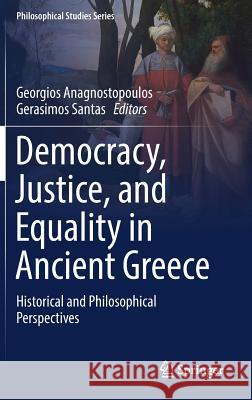Democracy, Justice, and Equality in Ancient Greece: Historical and Philosophical Perspectives » książka
topmenu
Democracy, Justice, and Equality in Ancient Greece: Historical and Philosophical Perspectives
ISBN-13: 9783319963129 / Angielski / Twarda / 2018 / 316 str.
The original essays in this volume discuss ideas relating to democracy, political justice, equality and inequalities in the distribution of resources and public goods.











